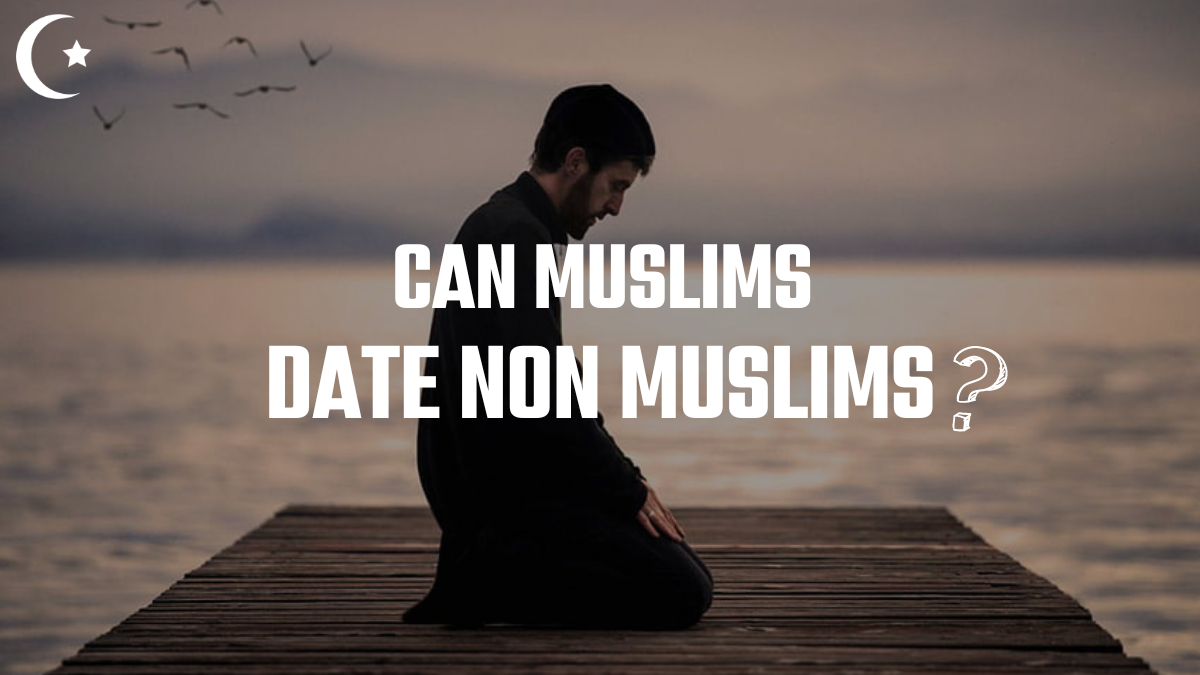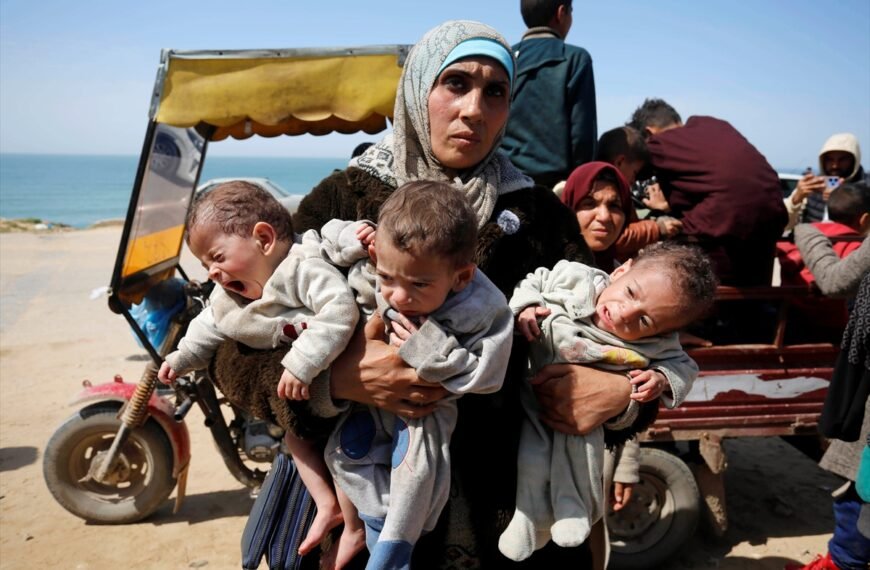Can love between different faiths really last? Can Muslims Date Non Muslims? This question is key to the debate on interfaith relationships among Muslims. As old traditions meet modern life, many wonder if Muslims can date non-Muslims. The answer is complex, tied to cultural beliefs and Islamic teachings that differ widely, especially in the U.S.
This piece explores the many sides of dating in Islam. It looks at the variety of views on marriage and the idea of halal dating. Halal dating focuses on building ethical relationships within Islamic rules.
Understanding Islamic Perspectives on Interfaith Relationships
Interfaith dating brings up many challenges within Islamic views. Muslims often look to the Quran for guidance. It usually says to avoid dating outside your faith unless you plan to marry. Sura Baqara 2:221 clearly tells Muslim men and women not to marry those who worship other gods.
Islamic law makes a clear line between okay and not okay relationships. Sura Al-Maeda (5:5) lets Muslim men marry women from other faiths like Christians and Jews. But, it’s much stricter for Muslim women, with most scholars saying they can’t marry non-Muslim men.
Some modern scholars are rethinking these old views. They suggest looking at today’s world when thinking about interfaith marriage. Dr. Khaleel Mohammed believes it could work if there’s no pressure to change faiths. But, the past teachings of Islam still weigh heavily on how to view these relationships.
It’s important to understand these different views for those dating across faiths. Muslim communities are working through these issues. Education and respect are key to building understanding between traditions.
For more on this complex topic, check out more about interfaith marriages and what people think about them.
Permissibility of Interfaith Marriages in Islam
Interfaith marriage in Islam brings up important questions about its permissibility. Traditionally, Muslim men can marry women from the “People of the Book,” like Christians and Jews. This is because their beliefs are seen as close to Islam. The Quran sets rules to make sure these marriages stay true to Islamic values.
On the other hand, Muslim women can’t marry outside their faith. The rule against them marrying non-Muslim men is to protect their beliefs. This rule helps keep the family’s faith strong, especially for the children who should grow up Muslim.
When it comes to Muslim men marrying outside their faith, it’s not simple. Keeping Islamic identity strong is key, which can be hard in interfaith marriages. History shows that such marriages sometimes led to big changes in faith, making leaders warn against them.
Legal rules add more hurdles, with many countries making it hard for interfaith couples to marry. For example, in Afghanistan, Algeria, and Djibouti, Muslim women can’t marry non-Muslims. But in Bangladesh, there are special rules for interfaith marriages. These laws show how culture affects interfaith marriages in Islamic societies.
The Traditional View: Muslim Men and Non-Muslim Women
The traditional view on Muslim men and non-Muslim women is complex. It looks at non-Muslim women who are “People of the Book.” This includes Jewish and Christian faiths. These marriages are allowed under Islamic law but come with rules.
People of the Book
Muslim men can marry non-Muslim women from the People of the Book. This group shares a common heritage, making these marriages more accepted. Yet, scholars warn of possible religious issues that could affect the family and children.
Conditions for Muslim Men
Islamic law sets rules for Muslim men marrying non-Muslim women. The woman must keep her faith after marriage. If she gives up her faith, the marriage might not be valid. These rules help keep the family united, especially in matters of faith.
Despite these traditional warnings, about 10% of Muslim women in the U.S. marry non-Muslim men. This shows how views are changing with time.

Restrictions on Muslim Women Dating Non-Muslim Men
Traditional Islamic teachings have strict rules for Muslim women in interfaith relationships. Scholars believe these women should not marry non-Muslim men. They worry about who will lead the household and the faith of the children.
Interpretations of Quranic Texts
Quranic verses make it harder for Muslim women to marry non-Muslim men. Verse 5:5 lets Muslim men marry non-Muslim women, but not the other way around. Scholars say marrying a non-Muslim could weaken a woman’s faith. They worry about the faith of children and the husband’s influence.
Dr. Daisy Khan says these rules come from old beliefs about men and women in Muslim societies. She believes many Muslim women in interfaith marriages keep their faith strong.
“As long as women maintain their religious values and agree with their believing spouse on raising children with Islamic teachings, marrying a non-Muslim man can be permissible,”
The Quran says people should not be forced to change their religion for marriage. This means Muslim women can still follow their faith even if they marry a non-Muslim. The debate on this topic is ongoing, showing how religion and personal choices intersect.
You may also be interested in:
Modern Interpretations and Progressive Views
The view on interfaith marriages in Islam is changing. Progressive Islam is leading the way for those who support changing views on interfaith relationships. This includes Muslim women marrying non-Muslim men. This change shows how personal relationships are becoming more diverse and moving away from old Islamic teachings.
Reformist Islam and Marriages
Younger Muslims are pushing for new ways to think about interfaith marriages. They believe in a kinder view of Islamic teachings. This view says love and friendship can go beyond faith differences.
Islamic scholars are now supporting these ideas. They say we should rethink old beliefs to fit today’s values of being open and diverse. This helps make interfaith relationships more accepted and brings people from different faiths together.
Prominent Scholars Supporting Change
Some important Islamic scholars are leading this change. They talk about how love can bring people from different beliefs together. By looking at religious texts in a new way, they show that Islam can fit with today’s society.
They encourage us to rethink old rules about interfaith marriages. This leads to more acceptance in both Muslim and non-Muslim circles.
Impact of Cultural Context on Interfaith Dating
Interfaith dating in Muslim communities is deeply shaped by culture. In places where Muslims are a minority, dating takes on unique forms. These are influenced by local norms and what people expect. Cultural norms often guide how these relationships are viewed and handled.
In countries where most people are Muslim, there are strict rules about dating outside one’s faith. This mix of religious beliefs and cultural traditions makes dating outside faith complicated. It can be tough for those looking to connect with someone from another faith.
Family values greatly affect decisions on dating outside one’s faith. For many Muslims, family can push for or against dating non-Muslims. In places like Egypt and Jordan, marrying someone not Muslim is a big worry. There’s a belief that converting a non-Muslim partner to Islam is the right choice.
This belief shows the tricky nature of dating outside one’s faith. It highlights the complex feelings that can come up in such relationships.
On the other hand, in more open societies, dating outside faith is more accepted. People may choose to date with an open mind, blending personal beliefs with their culture. Ultimately, the choices Muslims make in dating outside their faith are influenced by both their faith and their cultural background.
Challenges for Muslims in Interfaith Relationships
For Muslims, dating someone from a different faith can be tough. It’s hard because of community and family expectations. These beliefs can lead to a lot of pressure from others.
Many Muslims face disapproval from their families and friends when they date outside their faith. This can make them feel bad and make their relationships harder.
Community and Familial Expectations
Family beliefs are very important for Muslims in interfaith dating. Parents often want their kids to date someone who shares their faith and values. This can cause a lot of stress when a Muslim chooses to date someone else.
Women, especially, may face more judgment from society. They might feel like they’re being watched more closely.
Being in an interfaith relationship can also make things hard with the community. People might not accept it, making things tough for the couple. They have to deal with different cultures, traditions, and expectations.
This can put a lot of stress on the relationship. If the couple doesn’t understand each other’s family values, it can get even worse.
Couples might try to talk to trusted family or community leaders to get help. Talking openly about their beliefs can help families understand and accept them better. But, it’s still a tough journey for interfaith couples. They face many challenges in a society that values being with someone of the same faith.
Legal Aspects of Interfaith Relationships in Muslim Countries
Interfaith relationships in Muslim-majority countries have different laws. These laws affect how couples in these relationships live. In Turkey, for example, Muslim men can marry women from other faiths. This shows a more open culture compared to other places.
In some countries, like Lebanon, civil marriage is allowed, no matter the faith. But in Malaysia, the rules are stricter. They make it hard or sometimes impossible for Muslim men to marry non-Muslim women.
These differences in laws show how each country views interfaith relationships. They can cause emotional and social problems for couples. These couples have to deal with both their faith and legal issues to be together.
Conclusion: Is it Possible for Muslims to Date Non-Muslims?
The idea of dating between Muslims and non-Muslims is complex. It blends traditional Islamic teachings with modern views. While old beliefs limit such relationships, new ideas are challenging these views. These changes show how important respect and understanding are for any relationship.
For Muslim men, dating Jewish or Christian women is allowed under some conditions. But, Muslim women dating non-Muslim men is more complicated. Family and community pressures add to the challenge. It’s crucial for people to think about their faith and social setting in these relationships. Love, respect, and being compatible are key, not just religious beliefs.
As society changes, so does the talk about dating between Muslims and non-Muslims. Recognizing different views and ongoing debates helps people make better choices about their relationships. In a world where we’re all more connected, understanding between faiths is more important than ever.
FAQ
Can Muslims date non Muslims?
What does the Quran say about interfaith relationships?
Are interfaith marriages permissible in Islam?
What conditions must Muslim men follow when marrying non-Muslim women?
Why are Muslim women restricted from marrying non-Muslim men?
How are modern interpretations of Islamic marriage changing?
How does cultural context affect interfaith dating among Muslims?
What challenges do Muslims face in interfaith relationships?
What are the legal implications of interfaith relationships in Muslim-majority countries?

Embracing Faith, One Insight at a Time!
The teachings of the Quran have always guided my path. With a deep passion for Islamic knowledge, I strive to blend the wisdom of tradition with the relevance of today, making the timeless messages of Islam accessible and meaningful for everyone.
Muslim Culture Hub is my platform to share historical insights and thought-provoking articles, exploring both well-known and lesser-discussed aspects of Islamic culture and beliefs. My mission is to create an inclusive online space where everyone can learn, strengthen their faith, and connect with the profound message of Islam.
Join the journey!
May peace be upon you.








